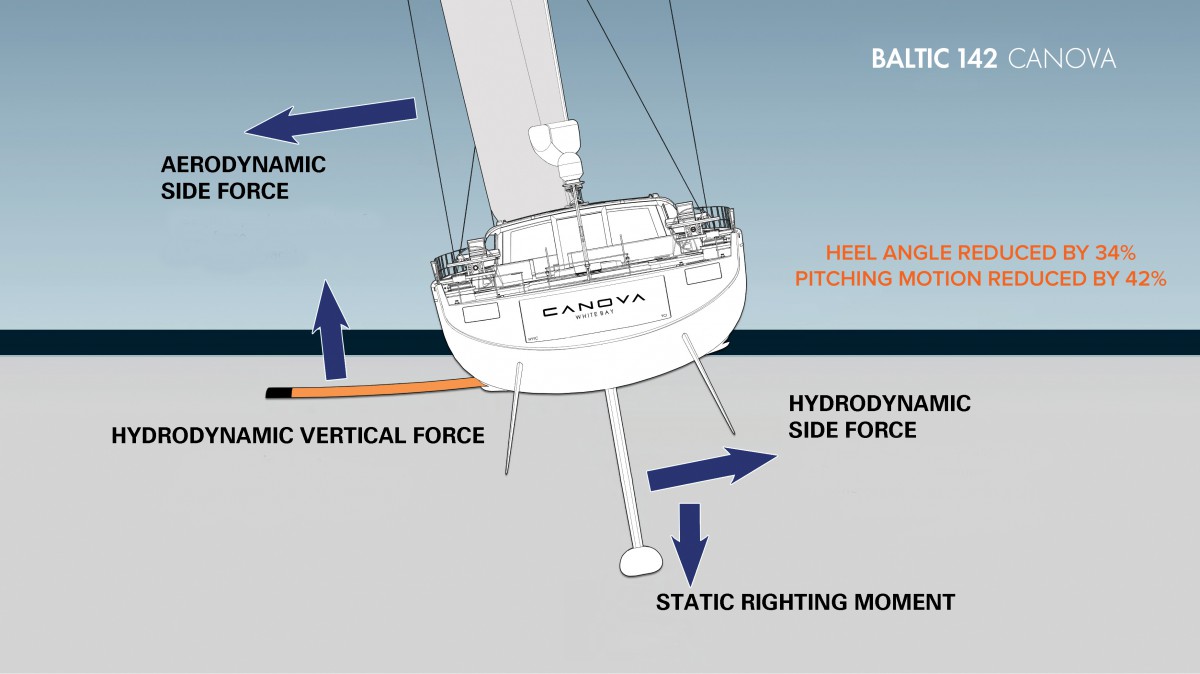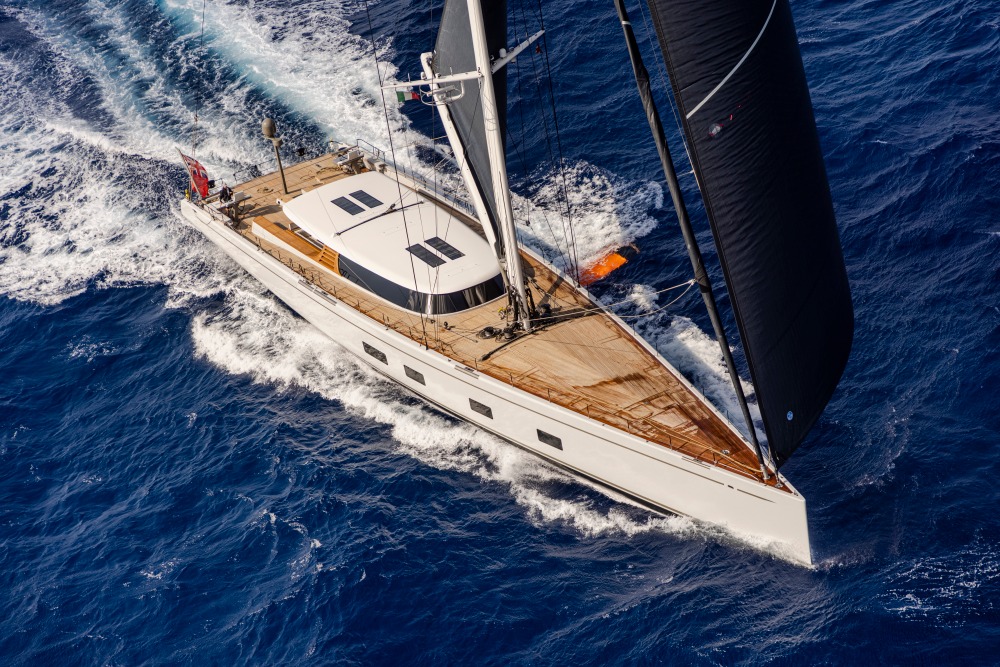[Original article:https://www.superyachtnews.com/technology/foil-assisted-cruising-by-baltic-yachts]
First adopted a decade ago by small racing yachts and, more recently, making the headlines as a key feature on board the latest America’s Cup yachts, foil technology is typically associated with high-performance and high-speed sailing. However, Baltic Yachts’ adoption of the innovative Dynamic Stability System (DSS) from Infiniti Yachts is changing this out-dated perception and proving that the foil technology offers major benefits for the cruising sector. As testament to this, the recently-delivered Baltic 142 Canova is the largest DSS foil-assisted yacht ever built, with the main aim of the technology being to improve on-board comfort as well as performance.
“The average cruising sailor might dismiss a foil as complex technology that makes the yacht more difficult to handle with increases in speed and sensitivity, but this is not the case at all,” explains Henry Hawkins, executive vice president at Baltic Yachts. “The deployment of the DSS foil within a cruising environment actually stabilises the yacht, making sail handling and control of the yacht easier and safer. One of the key benefits is the reduction in heel angle and pitching, which dramatically increases comfort levels for those on board. There are also significant performance gains to be achieved, but this is not necessarily the primary focus for employing the DSS foil on cruising yachts and certainly wasn’t on Canova.”
While the development of the Infiniti-designed DSS foil has been an engineering feat for Baltic Yachts, working in conjunction with partners Farr Yacht Design, ISOTOP and BAR, the system has been simplified to make it as bulletproof as possible. “We wanted to ensure that something so apparently complex was made as simple and reliable as possible,” adds Roland Kasslin, head of research and development at Baltic Yachts. The system comprises a retractable foil built into the yacht just above the waterline. As the wind increases, the yacht heels and the foil is projected underwater to leeward, counteracting the heeling force and creating lift so that the yacht sails more upright.

As a result, Baltic 142 Canova is proving to be more comfortable than any comparable sailing yacht. The DSS foil package has seen reduced heel angles of between eight to 10 degrees, as well as significant pitch and heave damping, both of which dramatically enhance comfort for those on board and reduce motion and strain on the helmsman. During Canova’s first long-distance passage, the yacht crossed the Bay of Biscay in 50-plus knots of wind and big seas, but the deployment of the foil made the passage comfortable for all on board.
“For inexperienced sailors, heel angle is one of the aspects about large sailing yachts that people fear the most and can make life on board untenable – a heel angle of 18-plus degrees on a 43m yacht with a 9m beam creates a considerable sloping deck,” says Hawkins. “This significant reduction in heel angle means that moving around the yacht is much easier and safer, making long passages more enjoyable.”
“This significant reduction in heel angle means that moving around the yacht is much easier and safer, making long passages more enjoyable…”
Another benefit of the additional stability that the DSS foil provides is that less keel weight is required, which has the knock-on advantages of less required sail area, draught and overall displacement. Therefore, a lightweight hull in carbon composites ideally suits the system – Canova displaces just over 145 tonnes lightship. For this reason, it is important that the decision to include a DSS foil is made right at the beginning of a project, as retrofitting the system is not always the optimal solution.
While Canova is the largest yacht to be fitted with a foil by a significant amount, the scope of the DSS is boundless. “The technology is scalable as long as there is the technical space for it, and the bigger the yacht, the more possibility there is for that,” advises Kasslin. “It would also be a weight-conscious decision: if you are deploying a foil then the yacht needs to be able to achieve a certain speed in order to overcome the natural drag that the foil will produce.”
Thanks to its outside partners and, crucially, one brave and forward-looking client, Baltic Yachts has pushed the boundaries of foil technology and proven its benefits to the superyacht industry. The industry is naturally cautious towards innovation, and therefore adoption of foil-assisted cruising has taken time. However, the success of the DSS foil on board Canova is changing attitudes and, combined with the increasing use of foils on racing yachts, the technology is set to become more popular in the cruising sector, with Baltic Yachts paving the way.


